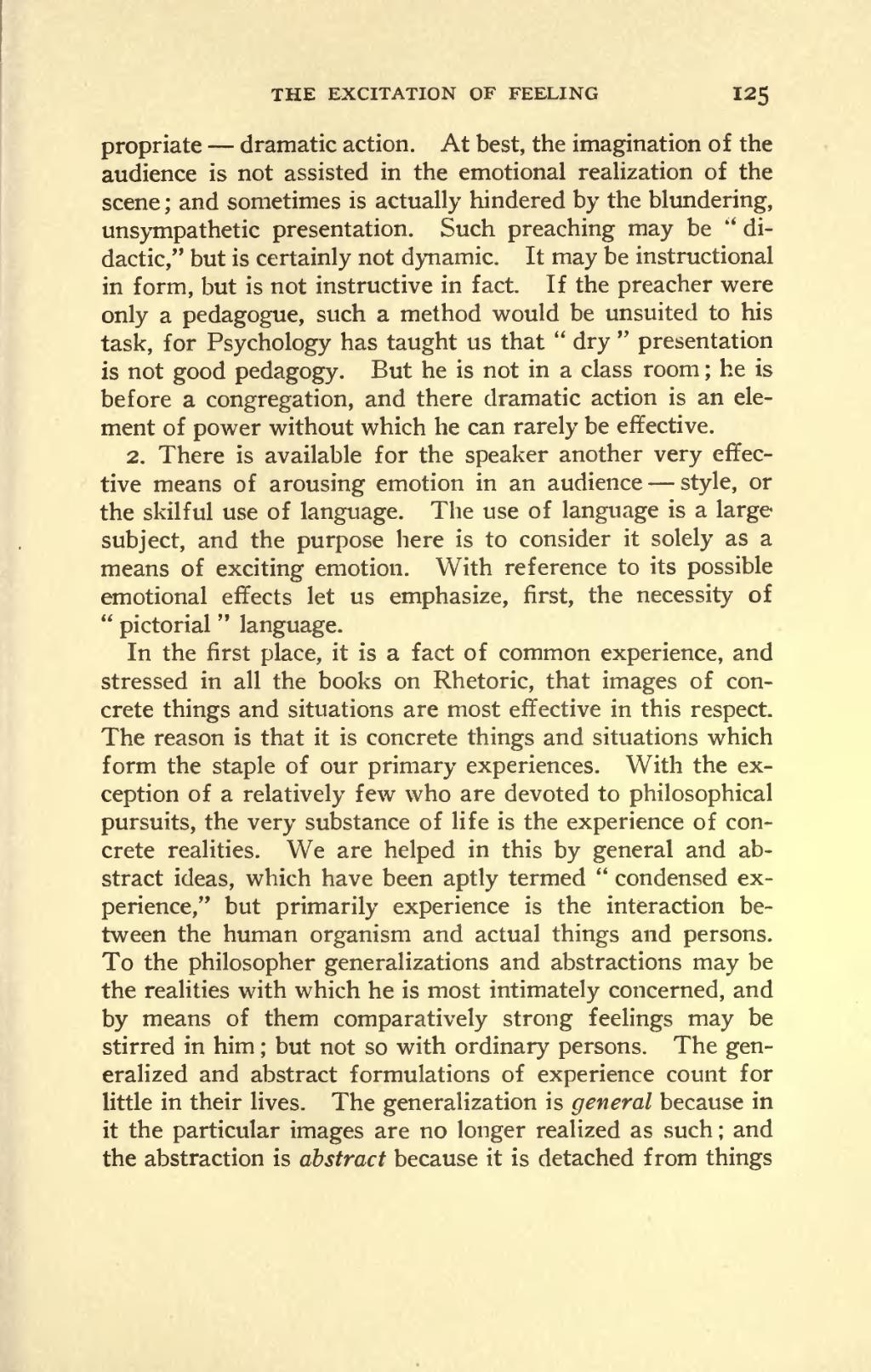THE EXCITATION OF FEELING 125
propriate dramatic action. At best, the imagination of the audience is not assisted in the emotional realization of the scene ; and sometimes is actually hindered by the blundering, unsympathetic presentation. Such preaching may be " di dactic," but is certainly not dynamic. It may be instructional in form, but is not instructive in fact If the preacher were only a pedagogue, such a method would be unsuited to his task, for Psychology has taught us that " dry " presentation is not good pedagogy. But he is not in a class room ; he is before a congregation, and there dramatic action is an ele ment of power without which he can rarely be effective.
2. There is available for the speaker another very effec tive means of arousing emotion in an audience style, or the skilful use of language. The use of language is a large- subject, and the purpose here is to consider it solely as a means of exciting emotion. With reference to its possible emotional effects let us emphasize, first, the necessity of " pictorial " language.
In the first place, it is a fact of common experience, and stressed in all the books on Rhetoric, that images of con crete things and situations are most effective in this respect. The reason is that it is concrete things and situations which form the staple of our primary experiences. With the ex ception of a relatively few who are devoted to philosophical pursuits, the very substance of life is the experience of con crete realities. We are helped in this by general and ab stract ideas, which have been aptly termed " condensed ex perience," but primarily experience is the interaction be tween the human organism and actual things and persons. To the philosopher generalizations and abstractions may be the realities with which he is most intimately concerned, and by means of them comparatively strong feelings may be stirred in him ; but not so with ordinary persons. The gen eralized and abstract formulations of experience count for little in their lives. The generalization is general because in it the particular images are no longer realized as such ; and the abstraction is abstract because it is detached from things
�� �
